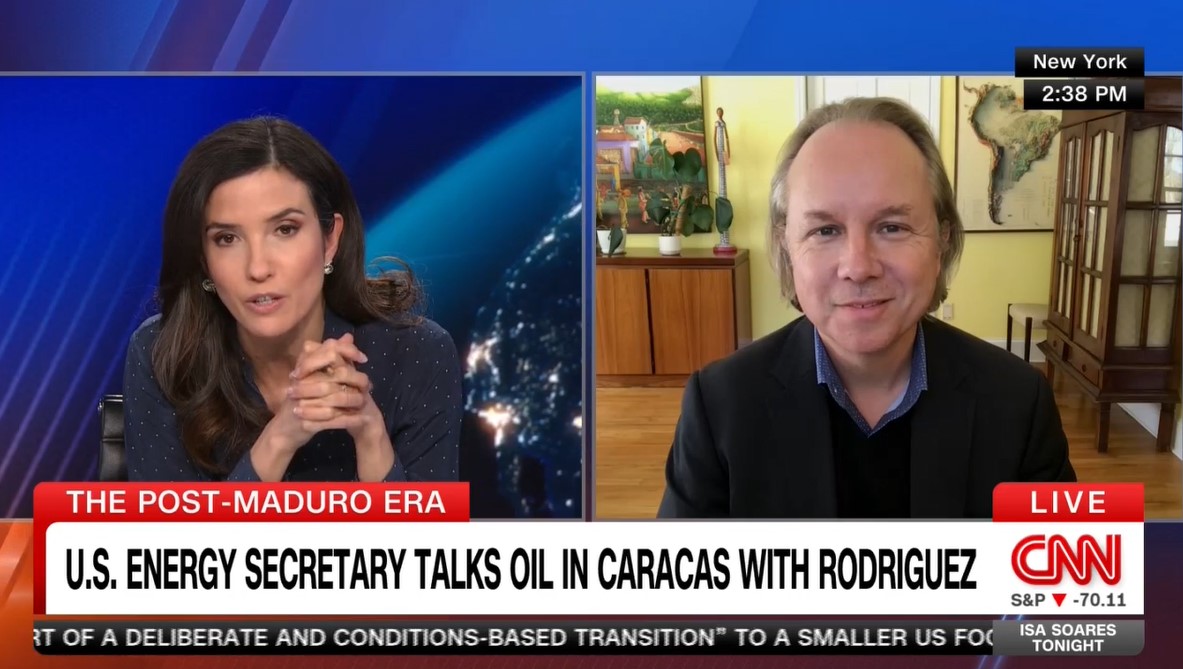It's the Trade, Stupid
It's the Trade, Stupid
"Now is the time to have an open and honest dialogue about the role of trade in the economy and the ways it influences economic growth, job creation, and wealth generation," writes AS/COA President and CEO Susan Segal in an op-ed for Poder on the sustainable benefits liberalized trade has for the global economy.
For all the attention we are giving to the various government programs designed to jumpstart the economy, it is incredible that there has been almost no discussion about a very important element in rebuilding global growth: trade.
Now is the time to have an open and honest dialogue about the role of trade in the economy and the ways it influences economic growth, job creation and wealth generation. Unlike quick-fix stimulus programs, trade is not a one-time boost for the economy. Rather, it provides multiple economic benefits in both the short and long term. It does not cost taxpayers money and clearly does not add to our fiscal deficit.
Recently, it seems we have all felt comfortable discussing and implementing programs that add to our deficit and produce—as most economists seem to feel—a one-time benefit to our economy. Every day brings another discussion of the Car Allowance Rebate System (CARS), a.k.a. the “cash for clunkers” program, or the first-time home buyer subsidy, or any other original idea that comes to the minds of our Washington policymakers. This is not to say that such programs are bad. In fact, they seem be serving their purpose.
But these programs are short-term Band-Aids and it is time that we start thinking about a long term strategy to return to sustainable economic growth and reduce unemployment. Facilitating the expansion of global trade must be on the agenda.
Let’s look at what has happened during this recession. The World Trade Organization estimates that global exports in the first quarter of 2009 decreased quarter-on-quarter by 22 percent and year-on-year by 31 percent. It also projects a contraction in the volume of traded merchandise of 10 percent in 2009, which translates to 14 percent in developed countries and 7 percent in the developing world. During this same period we have experienced a major contraction in economic output—together with most major economies of the world—and a significant increase in unemployment.
While trade is not the only factor that helps to generate growth and wealth creation, it is extraordinary to note that during those golden years the expansion of global trade was unprecedented. Overall unemployment was reduced to historically low levels. It is fair to say that some jobs are lost as a result of trade liberalization, particularly in industrialized countries where low-skilled workers are displaced as their jobs move to less expensive markets. But the truth is that many of these low-skilled jobs are eventually replaced by better, higher paying jobs. On balance, after a period of readjustment, more trade translates not only to more jobs, but also better paying ones. What is required to ease the transition from a low-skilled job to a better job is education and job retraining. Can there be a better use for a portion of the $780 billion stimulus package than to invest it in worker redevelopment?
In eight out of nine countries studied by the World Bank in the 1990s, manufacturing employment was higher during and one year after trade liberalization than before. Closer to home, almost 60 million jobs in the U.S. are directly linked to manufactured exports according to the Department of Commerce. During the 2003-07 period 32 states exhibited above-average export growth with 22 of those states also having above-average manufacturing employment growth. This is clear support for the notion that exports generate not just employment but good jobs.
Over the last several months, we have heard about the dangers of protectionism and why we must avoid it at all costs—a theme, which I have loudly espoused. However, it seems only half-hearted when we subtly introduce legislation and take measures that are protectionist. Protectionism is not the solution to job creation, and in fact it creates distortions and reduces the number of jobs.
So let’s start a positive discussion about the benefits of trade liberalization. We need to discuss how we can retrain workers and create better jobs for everyone. Let’s move forward on the pending trade agreements because they will produce economic benefits to us (not to mention the additional strategic reasons for Colombia and Panama). And finally, the United States needs to take a leadership role in convincing all the parties to return to the WTO and finally finish the DOHA round. Think about the positive message that would send.
Now is the moment to address the negative myths and difficult issues which people place as obstacles on the trade path and start an honest dialogue about the long-term benefits of trade liberalization. If we do, we will all win.








